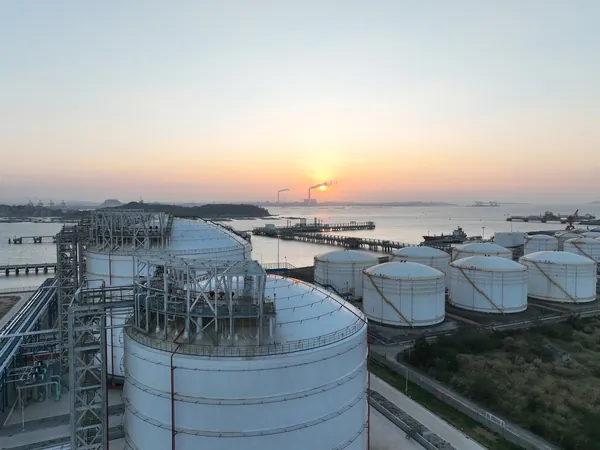
Revolutionary Breakthrough to Supercharge Methanol Production Using CO2
2025-06-27
Author: Sarah
Unveiling a Game-Changer for Fuel and Manufacturing
In a groundbreaking development that could reshape the fuel and manufacturing sectors, scientists have unveiled an innovative chemical process that dramatically enhances the efficiency of methanol production by converting carbon dioxide (CO₂). This remarkable achievement, backed by the U.S. National Science Foundation and detailed in the prestigious journal Nature Nanotechnology, is poised to significantly cut greenhouse gas emissions while delivering a more cost-effective resource.
Methanol: The Unsung Hero of Modern Materials
Methanol, often dubbed the 'unsung hero' of chemical production, is a crucial ingredient in countless everyday products, from plastics and solvents to paints and chemicals. Moreover, it is gaining recognition as a cleaner, more affordable alternative for electricity generation, marine transport, and even as an additive to gasoline.
A Sudden Leap in Efficiency
Traditionally, the production of methanol from CO₂ has been a slow and energy-intensive process. However, this newly developed method boosts efficiency by a staggering 66% compared to older techniques. This is made possible through the use of a specially crafted catalyst— a powerful combination of nickel and cobalt on a base of nanotubes—that accelerates chemical reactions without being depleted in the process.
The Science Behind the Breakthrough
The secret to this enhanced efficiency lies in the catalyst's ingenious dual-design. Dubbed a 'dual-site electrocatalyst,' it integrates nickel and cobalt compounds, each contributing uniquely to the conversion of CO₂ into methanol. Unlike traditional single-site catalysts, this innovative approach allows for superior charge transfer and improved reaction control. With an impressive electrochemical charge transfer efficiency of 50%, this advanced method leaves behind the previous 30% benchmark, leading to enhanced productivity and lower energy consumption.
Why This Matters: A Win for Industry and the Planet
Transforming CO₂, a notorious greenhouse gas, into a usable product presents a dual solution: cutting emissions while fostering sustainable resource production. This highly efficient process isn't limited to atmospheric CO₂; it can also utilize emissions from agricultural and municipal waste, paving the way for a circular economy that minimizes waste.
The implications of improved methanol production are vast, potentially leading to cleaner fuels for diverse applications such as vehicles, ships, and power plants. Additionally, manufacturers would benefit from a more reliable and affordable source of chemical feedstock.
A Step Toward a Sustainable Future
This remarkable advancement exemplifies how cutting-edge chemistry can contribute to our transition to a low-carbon economy. By significantly reducing energy usage and waste in methanol production, this innovative method makes renewable chemical manufacturing a tangible possibility.
The findings of this research mark a significant milestone in harmonizing industrial productivity with environmental stewardship. As industries worldwide strategize to lower their carbon footprints, this transformative technology could play a pivotal role in achieving a sustainable future.


 Brasil (PT)
Brasil (PT)
 Canada (EN)
Canada (EN)
 Chile (ES)
Chile (ES)
 Česko (CS)
Česko (CS)
 대한민국 (KO)
대한민국 (KO)
 España (ES)
España (ES)
 France (FR)
France (FR)
 Hong Kong (EN)
Hong Kong (EN)
 Italia (IT)
Italia (IT)
 日本 (JA)
日本 (JA)
 Magyarország (HU)
Magyarország (HU)
 Norge (NO)
Norge (NO)
 Polska (PL)
Polska (PL)
 Schweiz (DE)
Schweiz (DE)
 Singapore (EN)
Singapore (EN)
 Sverige (SV)
Sverige (SV)
 Suomi (FI)
Suomi (FI)
 Türkiye (TR)
Türkiye (TR)
 الإمارات العربية المتحدة (AR)
الإمارات العربية المتحدة (AR)